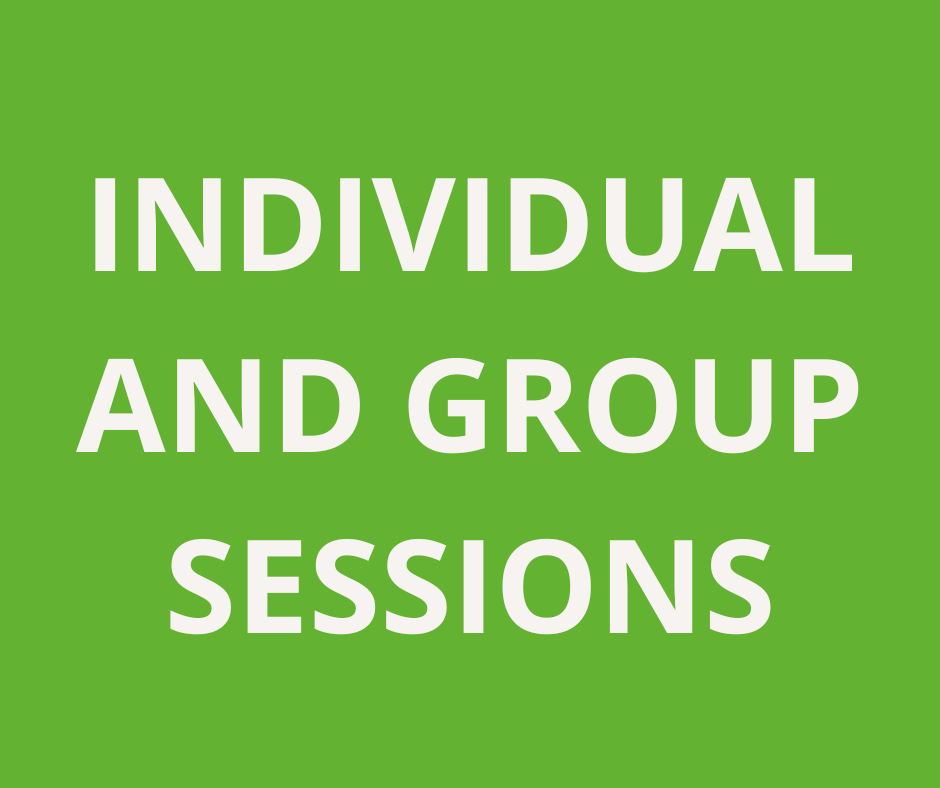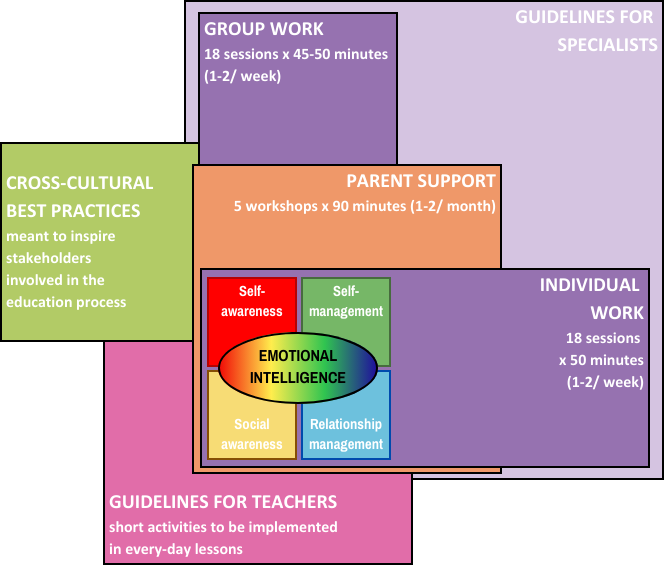EQ Teens Model
(students ages 11-15)

”Model of working with a pupil aged 11-15 for development of emotional intelligence – EQ Teens” will define processes, tools and rules of working with pupils aged 11-15, especially those with adaptive difficulties, for the development of emotional intelligence (EI) in the educational environment and at home, involving teachers, tutors, school pedagogues, psychologists and parents.
The model is focused on teenage pupils, who face a crucial stage in their cognitive and emotional development, which will influence their way of adapting to adult life. This life stage is defined by an identity crisis, in which the teenager is experiencing emotionality in the context of relationships with peers, is forming an identity and is searching for a personal style of doing things. They shape who they are and who they want to be while looking for appropriate ways to express themselves and their emotionality.
Pupils reaching adolescence experience accelerated emotional and social development, having specific needs and dynamics compared to their younger peers. Thus, this stage presents different problems and issues than the previous life stage and requires specific strategies to tackle them, also offering new opportunities for the development of emotional intelligence.
The model presents a comprehensive framework and a structured scheme on how to work with adolescents and how to support them towards the development of their emotional intelligence. The output is addressed to school personnel – teachers, tutors, counsellors, school pedagogues, psychologists, socio-therapists etc. – but also to parents and members of the community involved in the formal and non-formal education of the teenagers.
GLOSSARY
The glossary provides definitions of the key terms used in the model.
THEORY
The model contains two parts:
- part 1 – dedicated to theoretical information – about the dimensions of emotional intelligence, about the impact of the systematic training guided by teachers, parents and other professionals upon the development of emotional intelligence and also about the systemic perspective upon behavioural and disadaptive problems – and
- part 2 – dedicated to practical information – describing specific techniques, exercises, worksheets, guidelines, organized by key components (follow the colour codes to search for a certain one), for managing the development of emotional intelligence, which are to be implemented directly with the adolescent pupils in different contexts (one to one or in a group) or with the parents..
Part 1 or the theoretical part is addressed to both teachers and specialists involved in the education process of the adolescents and is structured as follows:
Part 1. Emotional intelligence and the educational environment
- Chapter 1. Pre-adolescence and adolescence – crucial life stages in preparing for adult life
- Chapter 2. Description of the emotional intelligence and its components
- Chapter 3. The development of the emotional intelligence and its importance
- Chapter 4. The role of teachers in the development of emotional intelligence
- Chapter 5. The systemic perspective upon behavioural and disadaptive problems
Part 2 or the practical part is divided into chapters focusing on different target groups (colour coded), as follows:
Part 2. Practical guidelines for developing the emotional intelligence within the school environment
- Chapter 6. Guidelines for teachers
- Chapter 7. Guidelines for specialists for individual work
- Chapter 8. Guidelines for specialists for group work
- Chapter 9. Parent support
- Chapter 10. Cross-cultural best practices
ACTIVITIES FOR TEACHERS
Activities for teachers present several short activities, which teachers may implement in their everyday lessons, no matter what subjects they teach.
INDIVIDUAL AND GROUP SESSIONS
Individual and group sessions are dedicated to specialists that work with pupils individually or in a group and contain: (a) a complete program for developing the emotional intelligence of adolescents in 50 minutes one-to-one sessions, meant to be delivered by trained school specialists (psychologist, school counsellor, school pedagogue, social worker, tutor, support teacher, psychotherapist/ socio-therapist etc.); the program is composed of 18 sessions (1 introductive, 4 for each key component and 1 final) and (b) a complete program for developing the emotional intelligence of adolescents in 50 minutes group/ class lessons, meant to be delivered either by trained school specialists (psychologist, school counsellor, school pedagogue, social worker, tutor, support teacher, psychotherapist/ socio-therapist etc.) or by experienced teachers/ youth educators who are already familiar with emotional intelligence development mechanisms; the program is composed of 18 lessons (1 introductive, 4 for each key component and 1 final).
WORKSHOPS FOR PARENTS
includes a complete program for supporting parents in developing the emotional intelligence of their adolescent children; the program is composed of 5 workshops (1 introductive and 1 for each key component) having a duration of approximately 90 minutes and it is recommended to be delivered either by a trained school specialist (psychologist, school counsellor, school pedagogue, social worker, tutor, support teacher, psychotherapist/ socio-therapist etc.) or by experienced teachers/ trainers/ adult educators who are already familiar with emotional intelligence development mechanisms;
BEST PRACTICES
Cross-cultural best practices is practically a collection of best practices from different countries and continents, which are meant to inspire both professionals working in the adolescents’ education and stakeholders involved in managing the education process (such as school headmasters, education inspectors, education curricula and policy makers etc.).









